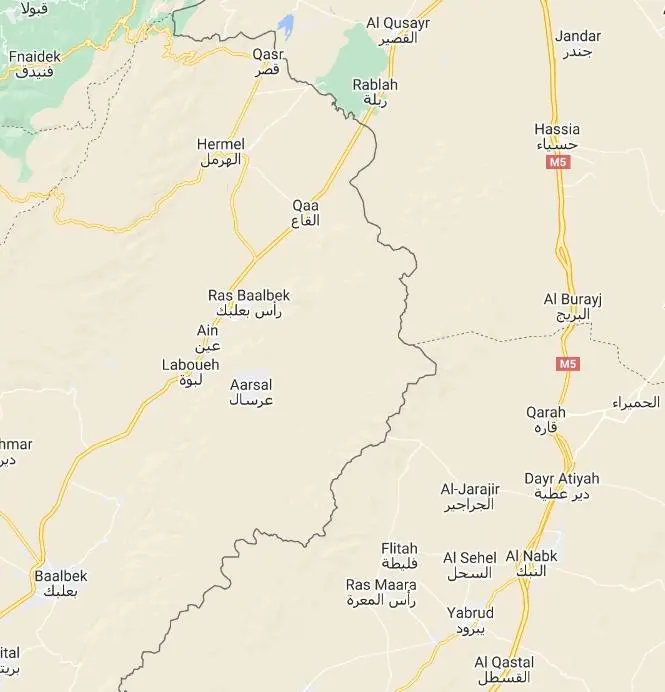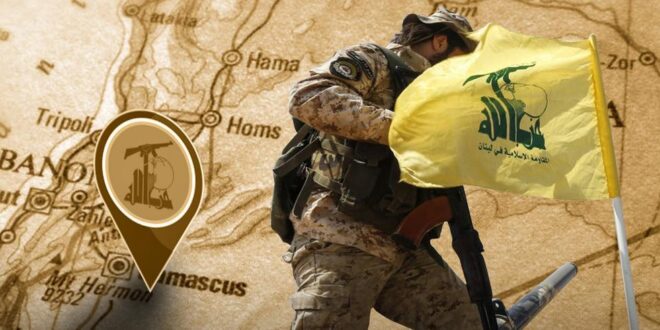Maher Al Assad, the younger brother of President Bashar.
The second layer is that of building a cartel-like apparatus within the border crossings. Hezbollah members infiltrate any position in the crossing management – police officers, customs officers, immigration officers, and other service providers – all of which become informers, the eyes and ears of the organization. This again includes bribing higher officials to turn a blind eye, or just threatening them to keep quiet.
The third and less known layer is the construction of smuggling tunnels between Syria and Lebanon. These tunnels have not reached the headlines yet, probably because they are not taken as a major threat to Israel as they allegedly do not infiltrate important areas and thus are less analyzed by Israel and the West. This might be a grave mistake as these tunnels allow the unhindered smuggling of advanced weapons systems and technologies, which will serve Hezbollah in the future.
The border tunnels
Most of these tunnels are on average 5-6 km long. Some are broad enough to allow a car to go through, others are meant for a motorcycle courier. They are meant not to draw any attention and are used only if needed. They were excavated by hand, at a pace of about 10 meters per week. The tunnels are covered, some leading into private homes. The sand is carried out in sacks, then cars, looking innocent to the untrained eye. This is a slow process meant to avoid the attention of Western intelligence services. There might also be longer tunnels, leading into the central nervous system of the organization in Lebanon.

The whole idea of the tunnel system has its origin in the Iranian doctrine, saying that anything that is crucial might be attacked from the air and therefore must go underground. The deeper the tunnels, the higher the importance. To Hezbollah and Iran, the supply lines through the border with Syria are no doubt crucial. In most cases, Hezbollah will keep apart crossings that are used for weapons and those that are used for fuel, drugs, and money. This allows him to lower the risk of losing everything in one strike.
Current events
Since the beginning of the current war in October 2023, Hezbollah opened at least three more unofficial border crossings near Qarah and Hassia to allow more smuggling. No doubt, that being most of the population in the area is Shiite, as this is part of the Bekaa valley, Hezbollah feels free to do as they want.
At the time when Ali Hamia, representing Hezbollah in the Lebanese parliament, served as Lebanon’s minister of transportation, he allocated funds for new border crossings. In fact, the state was funding Hezbollah interests. Hezbollah always craved to hold this position of minister, and after using Amal to do its bidding in this ministry, it finally got what it always desired.
For years Israel was keen in its decision not to attack the border crossings and only recently they attacked a vehicle near the “al Massna” crossing, the main passing point on the Damascus – Beirut route. On the other hand, convoys on their way to the crossing points are being attacked as they go through Syria.
Finally,
The official and unofficial border crossings between Lebanon and Syria are the lifeline of Hezbollah, crucial for their survival as well as military and social strengthening.
It is time for the West to take off the gloves and engage the supply routes that provide the survival capabilities of this terror organization and in such to foil the ultimate collapse of the state of Lebanon into the hands of Hezbollah and their Shiite patron, Iran.
 Eurasia Press & News
Eurasia Press & News




